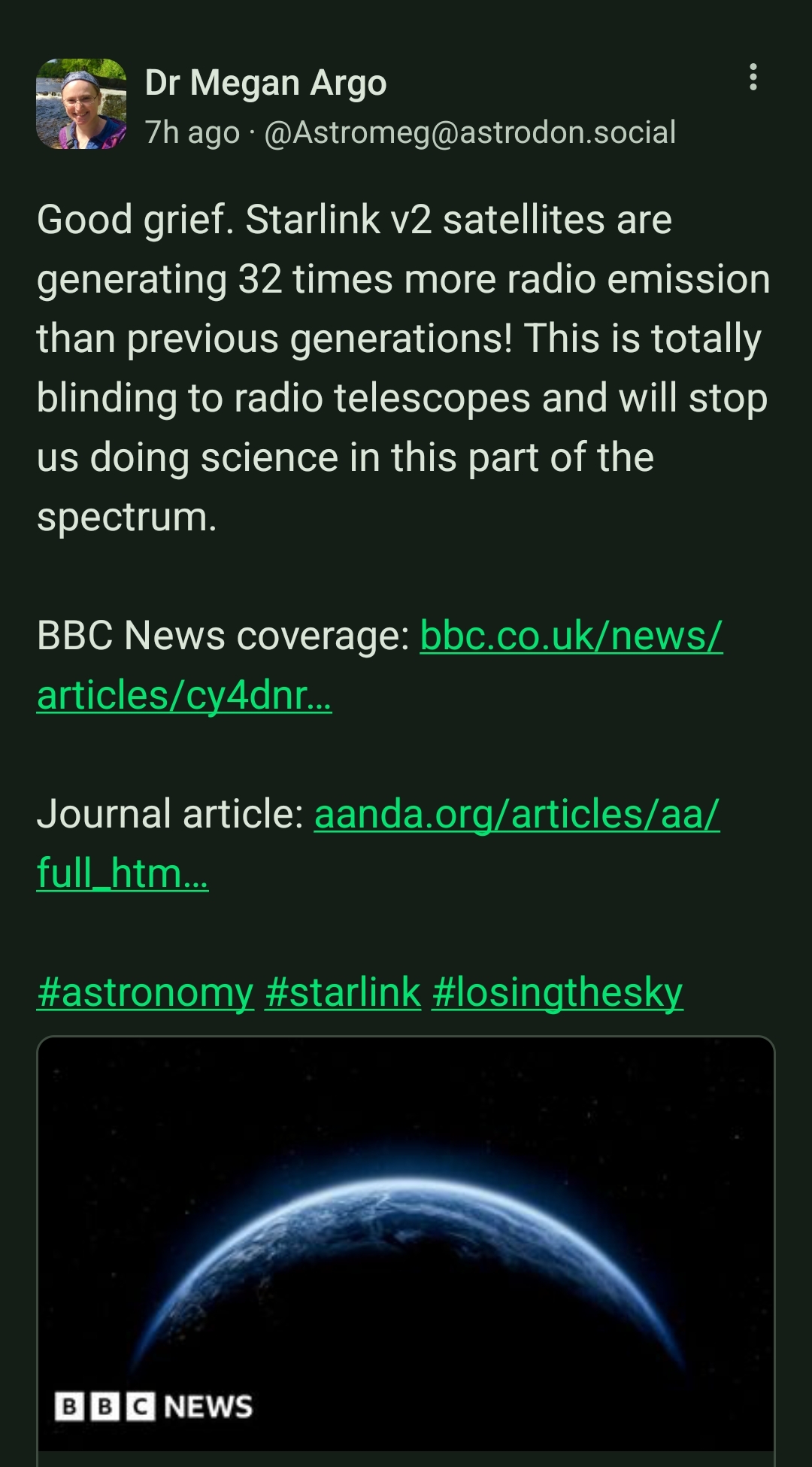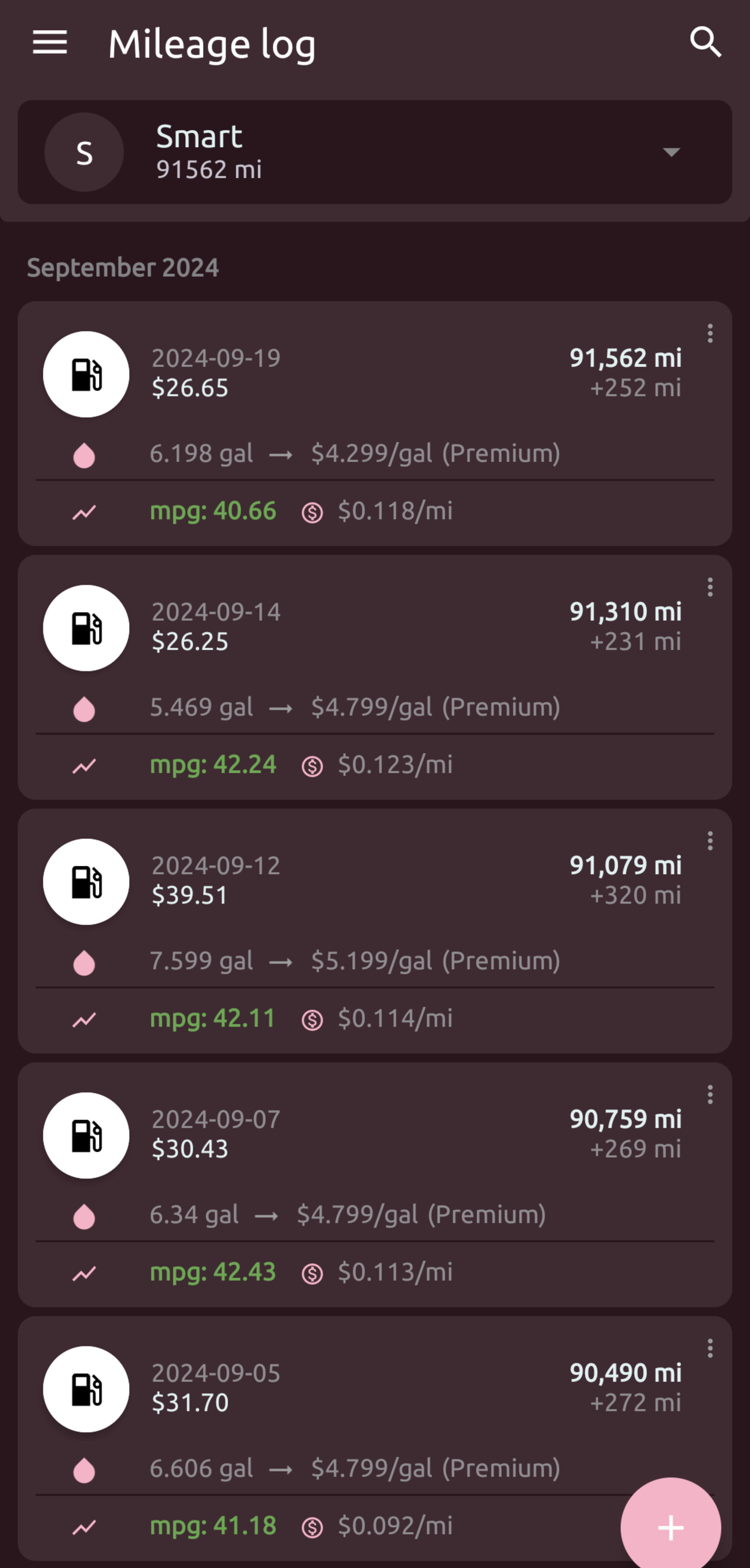this post was submitted on 18 Sep 2024
1220 points (97.4% liked)
Microblog Memes
6910 readers
1937 users here now
A place to share screenshots of Microblog posts, whether from Mastodon, tumblr, ~~Twitter~~ X, KBin, Threads or elsewhere.
Created as an evolution of White People Twitter and other tweet-capture subreddits.
Rules:
- Please put at least one word relevant to the post in the post title.
- Be nice.
- No advertising, brand promotion or guerilla marketing.
- Posters are encouraged to link to the toot or tweet etc in the description of posts.
Related communities:
founded 2 years ago
MODERATORS
you are viewing a single comment's thread
view the rest of the comments
view the rest of the comments

starlink wouldn't have a leg to stand on (in the US, can't speak for elsewhere) if isps were held to installing/maintaining/upgrading infrastructure that was already paid for by the federal government decades ago and then the isps just didn't do the work.
Privatized networks are a crime and it should be treated legally as such.
Public network for the public.
That’s a nice thought, but
Even in the best case where US was close to 100% wired up like we paid for, Starlink would have a market in remote areas world wide, RVs, aircraft, ships
The US government asked the big ISPs how much it would take to wire everyone up to high-speed Internet, then passed a bill to give them a ludicrous lump sum to do so (IIRC it was hundreds of billions). The money was split between dividends, buying up other companies, and suing the federal government for attempting to ask for the thing they'd paid for, and in the end, the government gave up. That left loads of people with no high-speed Internet, and the ISPs able to afford to buy out anyone who attempted to provide a better or cheaper service. Years down the line, once someone with silly amounts of money for a pet project and a fleet of rockets appeared, there was an opportunity for them to provide a product to underserved customers who could subsidise the genuinely impossible-to-run-a-cable-to customers.
If the US had nearly-ubiquitous high-speed terrestrial Internet, there wouldn't have been enough demand for high-speed satellite Internet to justify making Starlink. I think this is what the other commenter was alluding to.
this is exactly what I meant
We managed to wire up large swaths of rural area for electricity back in the 1930's
In a lot of places, that only happened because people banded together and made it happen for their area - the existing suppliers weren't interested, even with federal loans available. That's where the "Electric Co-op" companies came from.
Somehow capitalism has become about more profiteering, self-serving, instant gratification
But also there were no choices. Starlink may be a valid choice and the infrastructure is already there
This, I'm both very rural and in an RV at the same time. Starlink is literally my only means of playing games. The only other even remotely viable option is LTE internet from something like T-Mobile but out here the towers don't really have much capacity so I might be able to play the game fine and I might just start disconnecting Midway through a match randomly as the internet struggles to even load a basic web page
Welp, I guess we'll all have to suffer the consequences so that Lordkitsuna can game in the middle of nowhere. Truly first world problems.
https://www.space.com/starlink-satellite-reentry-ozone-depletion-atmosphere
I'm just saying blindly calling for it to go away entirely (which i see a lot of on stuff like this) isn't helpful. Clearly they need to tone down emissions but it's a useful service.
I work 10hr shifts at work and it's 1hr 30 both to and from work, moving isn't really an option for me atm. I don't think it's unreasonable I'd like to be able to stream my shows or play games with my friends to relax
lordkitsuna is the answer, dude. more people getting away from the grind of the big machine to live remote lives far from society is the answer. i don't like starlink either but these networks are crucial for the modern nomad to exist.
The answer to what? If everyone does this, there won't be a single remote place on earth that isn't crawling with sprinter vans. It can't scale, and it doesn't need to be specifically catered to. You want the wilderness, you get the wilderness. You want low latency Internet, then get to a fiber connection. We don't need every first world amenity everywhere.
nah. you can live in the city if that's what you like. i'll do what i like. do you really want to alienate non-urban liberals?
depopulation is a possible alternative to preventing swarms of sprinter vans too. you really don't want to put everyone in a city.
I'm not trying to alienate anyone, I'm trying to understand why low latency gaming needs for digital nomads is worth the real downsides of providing such a service (scientific, GHG, atmospheric tinkering, etc). I also believe that we should leave a lot more of the earth alone and that nature matters. I'm not trying to put people anywhere, just recognizing there are pros and cons to different living schemes, humans are social creatures, and population of 2 areas don't warrant large societal investments. I'm similarly against a hypothetical drone sushi delivery service for rural Canadadian boreal forests if that happens to have real downsides too.
who said anything about gaming? what if you work remotely and can't afford rent? what if you feel unsafe around gatherings of people (including small towns)?
The original post I responded to was someone talking about how starlink lets them game in a rural RV. What about carbon emissions from thousands of rocket launches? What about atmospheric damage? What about astronomy? I'm saying the downsides don't appear to be worth the upsides for these niche scenarios. Humanity survived just fine for quite some time before ultra remote Internet became a thing.
look, i hate it too. i don't want these things in my night sky either, but just give us anti-social, edge-of-civilization dwellers some respect and recognition. we're not trying to take any more than we need.
Does the modern nomad need to exist in the first place? Taking your money into an RV so you can guzzle gas on it, and just stream videos while you pretend to enjoy nature?
you can just exist in a remote place and not make videos too my friend. sorry that your understanding of what life outside a city looks like has been shaped by the internet instead of reality.
My rv doesn't move, i drive a smart fortwo and get 40+MPG
I have solar on my RV and don't use utility electrical. No propane appliances, heatpump hot water, and heat/cooling. Top rated efficiency washer and a heatpump dryer to go with it. Just because i want to be rural doesn't mean I'm wasteful.
I'm out here because it's the only place land is remotely affordable and I'm tired of renting. I saved up what i could, managed to get a great deal on 5 acres. And built up a sustainable rv to live in till i can build a house.
Supposedly there are plans for fiber to deploy in this area within the next 5 years. When that happens I'm all over it, i regularly go on hikes the trails out here in the mountains from old logging roads are amazing.
That doesn't mean i shouldn't be allowed some modern entertainment as well
Welp, I guess we all have to suffer with no internet in rural areas because of some astronomy nerds. I'll take global, high-speed, expensive, but still affordable internet over some shots of distant nebulas any day. Not a Musk fan, but this sounds like a desperate attempt to find something to dunk on him for. There's tons of reasons already, but this ain't one.
The point of this thread is that Starlink only exists to solve this problem because the ISPs were paid to do it the old fashioned way and decided to fuck off with the cash instead. It wouldn't have solved the RV issue, but if nost rural areas had the cable internet the government bought, then Starlink likely never gets off the ground, pun intended.
This only applies to the US. My point is that by it's nature it is global, and it competes with all the shitty local monopolistic ISP's around the world. Like, I intend to do a cross-country tour around mediterranean next year, and from experience, local cell providers there can be quite a lot of hit and miss. If starlink is activated there by the time I'm all set, I'm dropping the cash, no question about it. And yeah, like @spidermanchild said, I'm just a tech bro nomad cosplaying an explorer, but there are also people actually living in those regions that have to deal with this bullshit. I know it's unpopular opinion but I'd say a push against those local ISP's and getting those rural people a decent internet connection is ultimately doing more good than whatever inconvenience scientists have to deal with scrubbing trails off telescope imagery and filtering out the radio interferences.
Scientists doing science > tech bro nomads cosplaying as explorers but actually just playing fortnite in a van. You're also ignoring the other downsides besides spectral emissions. Read the article I linked.
Scientists experiencing slight inconveniences while doing, let's face it, not that important of a research < people being stranded off civilization by predatory ISP's, if not lack of any.
For the article, the way I read it, there isn't a problem currently, and it's not clear whether it will pose a problem in the future, but the alarm bells have already been rung and even if it proves to be true, it doesn't sound like something that more tech couldn't solve - just use different materials and coating or whatever. And I don't see how it's specific to starlink - nobody seems to bat an eye about ozone layer when NASA does ISS resupply missions or when China is blowing up satellites on orbit.
You certainly act like a Musk fan.
I also live in a rural RV. I've been stuck in one and using copper wiring since 2004. I don't have the money for Starlink, never have, never will. The upfront cost is insane. I also game on copper wires. Solo and multiplayer games, with my friends over discord.